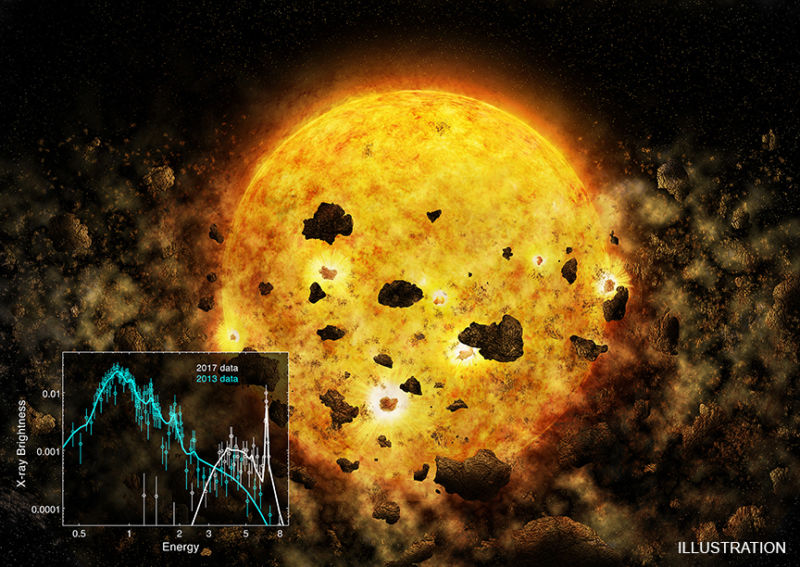Star’s dimming and brightening may indicate it’s eating a planet

Enlarge / An artist's conception of the star bathed in debris, along with an image of the surge in X-rays (inset). (credit: NASA/Chandra)
Planets don't sit still. The seemingly stable orbits of our Solar System could easily give the impression that once a planet forms, it tends to stay in orbit where it started. But evidence has piled up that our Solar System probably isn't as stable as we'd like to think, and many of the exosolar systems we've now seen can't possibly have formed in their current state. In a few cases, we've spotted stars that contain elements that were probably delivered by a planet spiraling in.
Now, scientists may have caught the process while it was happening. A star that dimmed for a couple years has somehow ended up with 15 times the iron it had in earlier observations, suggesting it ran into a planet or a few smaller planet-forming bodies.
Not so stableIf you were to take the current configuration of the Solar System and run it forward a million years, nothing much would change-all the planets would be in the same orbits they started in. But run it forward a few billion years and strange things can happen. The orbital setup is chaotic, and future changes are very sensitive to the starting conditions. In addition, many of the features of the Solar System are hard to explain using planetary formation models, leading to the proposal of the Grand Tack, in which a much younger Jupiter migrated inward toward the Sun before being dragged out to its current position by Saturn.
Read 11 remaining paragraphs | Comments